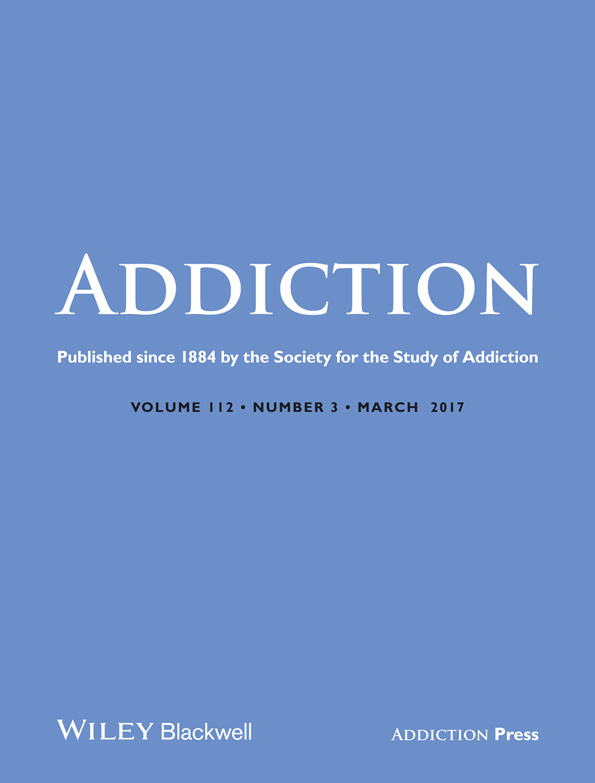Prioritizing the patient in patient-centered addictions treatment
Patient-centered approaches to substance use treatment have great potential to improve its quality and effectiveness. As we move into this new frontier of research and clinical practice, such approaches must be designed and measured with consideration of patients' values and needs.
The recent report by Schwartz et al. ‘Patient-centered methadone treatment: a randomized clinical trial’ 1, brings a very timely and perhaps long overdue concept to addictions research. Patient-centered care (PCC) is not a new approach. Its resurgence in medicine is not surprising, particularly for people with chronic conditions, as more than a decade of research has demonstrated its association with treatment retention, satisfaction and improved health outcomes 2, 3.
As addiction is recognized increasingly as a chronic condition, PCC approaches that incorporate the unique needs, values and preferences of each patient 2, 4 are essential to improve treatment retention and outcomes. Schwartz et al. are pioneers at testing PCC in the context of methadone maintenance treatment, and this is an important first step. There are at least two further considerations to be made when interpreting the design and findings of this study, both of which have implications for how PCC is defined and integrated into health services for this patient population.
For Schwartz et al., the role of the counselor was the key distinction between patient-centered methadone (PCM) and methadone treatment-as-usual (TAU) conditions. Specifically, counseling was required for the TAU group and was ‘encouraged but not required’ for the PCM. Although there has yet to be a definition of PCC for addictions treatment, this PCM definition does not account for at least three additional PCC principles: (1) understanding the biological, psychological and social aspects of the illness; (2) exploring the illness and recovery experience; and (3) sharing power, knowledge and responsibility 5, 6. As there were no differences between treatment conditions in the intake, dose titration, drug screening and methadone take-home procedures, there were missed opportunities to test these additional PCC principles. This is particularly relevant, as methadone patients have previously reported dissatisfaction with the comprehensiveness of this treatment 7 and its limited opportunities for shared decision-making 7.
The selection of opioid-positive urine tests as the primary outcome tested by Schwartz et al. requires reconsideration as PCC expands in this field. In substance use treatment, there is often discordance between how patients and health-care providers define patient goals and the outcomes achieved 8, 9. This raises the question of whether outcomes measured from PCC approaches should be standardized or patient-defined 10. To better align the theoretical intention of a PCC treatment design with the outcomes tested, it would seem sensible that patient-centered addictions research measure patient-generated and patient-reported outcomes 10, 11. Such personalized tools might ask patients what led them to treatment and to rank these by importance 12. The addition of these measures moves us away from those, such as urine drug tests, that do not represent the patient's values adequately 9.
We commend Schwartz et al. for recognizing the role of PCC in the quality and effectiveness of substance use treatment. As this research continues to develop, we encourage it to remain grounded in the patient's values and not from what we as academics and health-care providers consider most relevant. This should include how PCC is operationalized and measured.
Declaration of interests
None.




